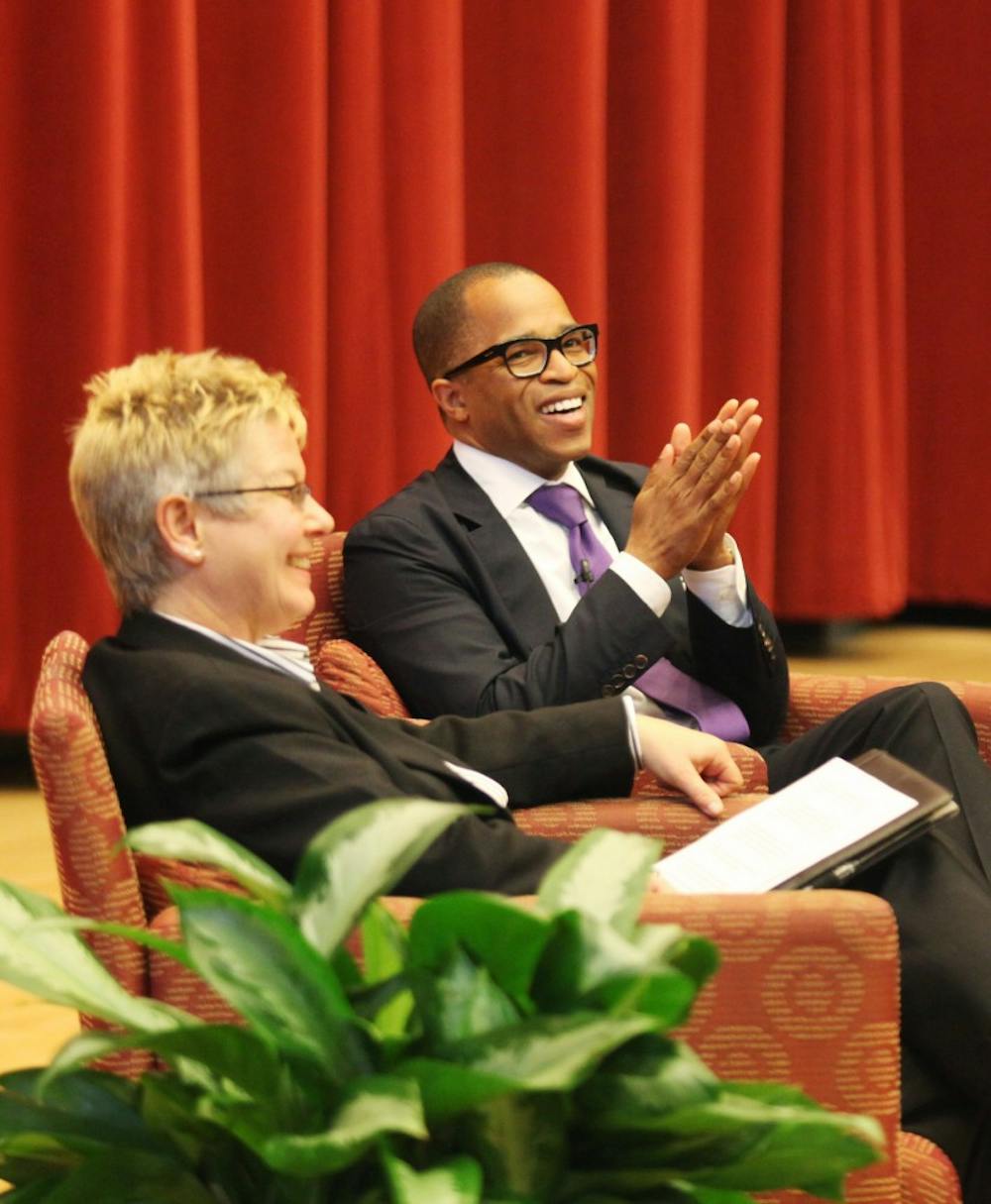It will take more than a Supreme Court decision on marriage to bring the fight for LGBT rights to an end, said two prominent, openly gay journalists Wednesday.
“Marriage is not the be all and end all — there are a whole lot of other things,” said Jonathan Capehart, who works for The Washington Post and MSNBC.
Mayor Mark Kleinschmidt — the first openly gay mayor of Chapel Hill — introduced Capehart and Frank Bruni of The New York Times, who spoke on campus about the future of LGBT rights in America as a part of a series organized by the UNC LGBT Representation and Rights research initiative.
In the wake of the passage of Amendment One, the issues of gay marriage and gay rights in general have become extremely pertinent on a local level, said department of global studies chairman Andrew Reynolds, the director of the initiative, in an interview.
“I think there’s also a big academic discussion that UNC is leading in the South that makes this a great time to have this discussion as well,” Reynolds said.
The discussion, held in the Nelson Mandela Auditorium at the FedEx Global Education Center, drew about 100 attendees from across the state.
Bruni said while the issue of marriage often steals the media spotlight, people must remember there are other gay rights issues that are important.
The Employment Non-Discrimination Act, which would prevent discrimination in hiring and employment, has yet to pass into legislation. The Fair Housing Act does not cover LGBT discrimination when it comes to rental housing, either. To lose or be denied a home or job due to sexuality is an equally, if not more, pressing issue to Bruni than marriage.
“It feels like we have gone to part B, marriage, and part A was never accomplished,” Bruni said.



